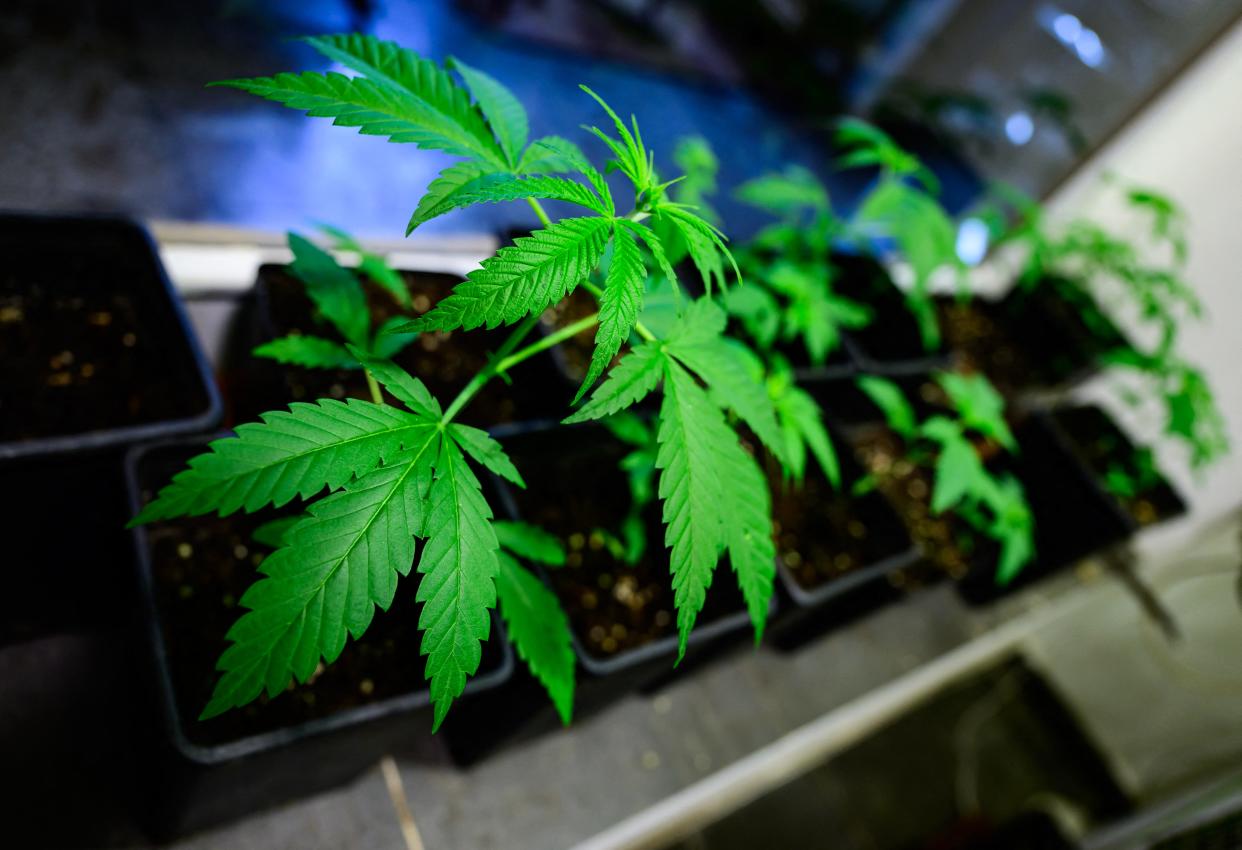Trucker failed drug test after taking CBD supplement. Supreme Court to decide if he can sue
WASHINGTON − After an accident left truck driver Douglas Horn with chronic pain, he wondered if a supplement advertised as a “new CBD-rich medicine” would help.
The company promised the hemp-based product, Dixie X, did not contain THC, the active ingredient in marijuana. But after Horn failed a drug test and lost his job, he sued – using in part a federal law created to fight organized crime.
On Monday, the Supreme Court said it would decide if Horn can continue his suit.
The justices agreed to hear an appeal from Medical Marijuana Inc., asking for review of a lower court’s ruling that Horn could sue under the Racketeer Influenced and Corrupt Organizations Act.
Prosecutors can use RICO to go after mobsters and others. But civil suits are also allowed, even if no one has been charged with a crime. If successful, the litigant can get three times the amount of actual damages and attorney’ fees.
The law allows suits by anyone “injured in his business or property” as a result of racketeering activity.
Horn alleges that Medical Marijuana Inc. committed mail and wire fraud, causing him to lose his job.

After seeing advertisements for Dixie X, Horn said, he watched a video in which a company official said its products didn’t contain THC. The same claim was made on the website and by a customer service representative, Horn said.
But a few weeks after he started taking Dixie X in 2012, Horn tested positive for THC. Shocked, Horn said, he sent Dixie X to a lab, which confirmed it contained THC.
Learn more What does CBD do? Health benefits and when to be wary
In 2015, Horn sued for lost earnings, using both RICO and New York state laws.
A district judge said RICO excludes personal-injury claims. When Horn appealed, the New York-based 2nd U.S. Circuit Court of Appeals sided with him. The court said the plain meaning of the word “business” allows Horn to sue.
“Because the term 'business' encompasses 'employment,' Horn has suffered an injury 'in his business,' as contemplated by the RICO statute,” Circuit Judge Gerard Lynch wrote for the three-judge panel. Horn's "termination cost him current and future wages and his insurance and pension benefits – all of which were tied to his employment."
This article originally appeared on USA TODAY: Supreme Court to decide if maker of CBD products can be sued under RICO
